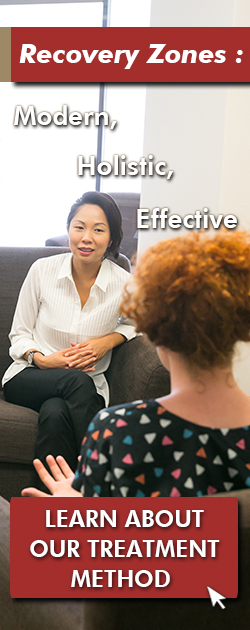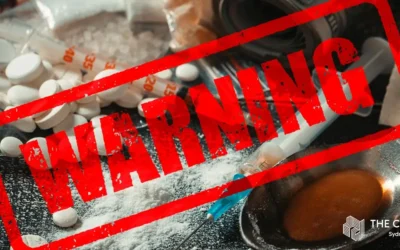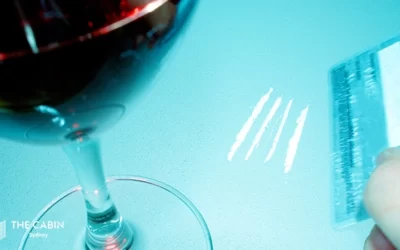Being married to an addict can feel challenging, chaotic and overwhelming, and it can be difficult for spouses of addicts to determine the right course of action. Learn about addiction in relationships, and your best options for dealing with it head-on.

Sharelines
Addiction is one of the most powerful forces that can shake the foundation of a marriage. In fact, it is considered by many therapists to be one of the ‘three A’s’ – or top three legitimate reasons for divorce – alongside abuse and affairs (which can also be by-products of addiction).
Addiction causes chaos in a household, and non-addicts can find it difficult to make sense of it all as they watch their partner undergo character changes, behave in ways they never normally would and spiral out of control. Behavioural and personality changes resulting from the disorder can disrupt the equilibrium of a relationship and leave spouses feeling at a loss as to what to do.
As the primary source of support for your spouse, and someone who is legally and financially bound to them, their struggles become yours as you incur the consequences of their addictive behaviour. Ultimately, this complicated scenario usually requires intervention and professional addiction treatment to overcome.
So how best to handle your partner, and take care of yourself, in this situation? How do you decide when enough is enough?
Behaviours of an Addicted Partner
Addiction is a chronic, progressive disease. The longer it is left untreated, the more it intensifies. As the addiction takes over as their main driving force, your partner may begin to create a world that revolves around getting their fix – this can involve extensive lying, secrecy and manipulation. Within the context of an intimate relationship, this can mean your addicted partner may make you feel responsible for his or her actions. You may find yourself making excuses for them to their family, your family; their co-workers and friends.
Enabling Addiction in Relationships
Most spouses of addicts become enablers to some extent – and understandably so. It is natural to want to help our loved ones when we see them struggling. The idea of leaving the relationship can feel like giving up, and can be anxiety-producing when you are unsure of what consequences may lie in store for your partner once you are no longer in the picture.
The truth is, however, that cleaning up our partners’ messes and mitigating consequences for them actually worsens their addiction. You may find yourself doing things like financially supporting a partner who has lost their job, bailing them out of jail when they get a DUI or avoiding the subject of addiction altogether. That buffer means they do not feel the full negative impacts of their addiction, which can keep them from seeking help.
Co-dependency is Common in Addiction-Affected Marriages
Enabling is a form of co-dependency, where your self-worth becomes based on helping your addicted spouse in ways that are not in your best interest. You may enable their behaviour out of fear, in attempt to control a situation that seems very much out of your control, or to lessen your own feelings of negativity. It is important to remember, though, that while your partner may not be in control of their behaviour while in the grips of their addiction, you have the right to maintain your boundaries and not let people treat you poorly – even if that person is your spouse.
So, what actions can you take to deal with an addicted spouse? There are a few options; what is best for you depends on your situation.
Performing an Intervention
Denial is a major aspect of addiction. Those suffering from severe substance abuse problems are often unable to accept and acknowledge their problem and the impact it has on themselves and others. An intervention can help bring these issues to light and provide a jumping off point for your addicted partner to get into treatment. It is an opportunity for the whole family to learn more about addiction and how it can be helped. Be aware, however, that this is a delicate process. Learn more about how to stage an intervention here.
Legal Separation
Depending on your situation, it may be appropriate to take a separation period. During a legal separation, you remain married but are no longer financially attached to your spouse. Under the right circumstances, this can be a healthy tool to establish individual responsibility during the period in which the family is learning about addiction and attempting to untangle its web.
Asking Your Addicted Spouse for a Divorce
You may find that ultimately, divorce is your only option. In fact, it is likely that you have threatened your partner with this several times in the past out of exasperation. One partner of an addicted spouse, Janet Howe, recalls:
“It was an ugly pattern that just kept repeating itself. In the end, I had to give myself permission to leave him in order to save my own life. And that wasn’t an easy choice to make; it was the hardest thing I’ve ever had to do.”
Looking back, she credits the divorce with saving the lives of both herself and her ex-husband. When a relationship becomes abusive and destructive, sometimes ending it is the best way to move forward and allow time and space for the healing and restoration of everyone involved. Addiction has the potential to drag others down with it – avoiding this is important to keep in mind.
In Any Case, Addiction Treatment is a Must
It is absolutely crucial to seek addiction treatment for your partner, yourself and your family, regardless of what you decide to do in your relationship. It is essential to understand addiction and work through all of the trauma
incurred by your spouse’s actions in order to heal and step into a healthier, happier life.
Several sources of research prove that including a person’s family in their treatment for substance or process addiction leads to more effective outcomes. Put more simply, addiction family programmes increase the likelihood of achieving lasting recovery.
At The Cabin Sydney, we offer clients’ partners the opportunity to come into treatment with them and receive education about addiction as well as therapeutic tools to overcome its negative impacts.
If your partner is struggling with addiction, contact The Cabin Sydney today to see how we can help you both get your lives back on track.




